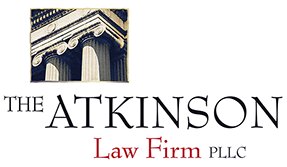Best Dependent Visa Lawyers in North Carolina
Share your needs with us, get contacted by law firms.
Free. Takes 2 min.
Or refine your search by selecting a city:
List of the best lawyers in North Carolina, United States
About Dependent Visa Law in North Carolina, United States
A Dependent Visa allows family members such as spouses and children to join a primary visa holder during their stay in the United States. In North Carolina, as with the rest of the country, dependent visas are a crucial component for families looking to live together while one member works, studies, or carries out specialized tasks under a primary visa like H-1B, F-1, or L-1. The process for obtaining a dependent visa, such as H-4, F-2, or L-2, often requires careful document preparation and compliance with both federal immigration laws and local requirements. North Carolina does not have individual visa laws but its institutions, schools, and local regulations can affect the experiences of dependent visa holders residing in the state.
Why You May Need a Lawyer
Navigating the dependent visa process can be complex and time-consuming. Common situations where legal assistance is valuable include gathering supporting documentation, understanding eligibility requirements, addressing complications due to changes in employment or study status of the primary visa holder, and responding to visa denials or requests for additional evidence. Additionally, issues may arise if the relationship status changes (such as divorce or separation), or if dependent children age out of eligibility. A lawyer with expertise in immigration and local North Carolina procedures can help ensure your paperwork is accurate, advise you on rights and responsibilities, and assist with appeals or communications with United States Citizenship and Immigration Services (USCIS).
Local Laws Overview
While dependent visa eligibility and application processes are governed primarily by federal law, local regulations and institutions in North Carolina can impact dependent visa holders in significant ways. Some key local concerns include:
- Access to public education for minor dependents under F-2, J-2, or H-4 visas
- Driving license eligibility, which requires proper documentation and may vary by county
- Spousal work authorization, which is permitted only for some dependent visa categories such as L-2 and certain H-4 holders
- Public assistance eligibility, which is generally restricted for dependent visa holders
- Health insurance requirements, especially for dependents attending schools or universities in North Carolina
It is important to check with local agencies and legal professionals to understand how these laws and policies affect your family.
Frequently Asked Questions
What is a dependent visa and who qualifies for one?
A dependent visa allows the spouse and unmarried children under the age of 21 to join a primary visa holder in the United States. Eligibility is based on the legal relationship to the primary visa holder and the type of principal visa held.
What types of dependent visas are most common in North Carolina?
The most common dependent visas are H-4 (dependents of H-1B workers), F-2 (dependents of F-1 students), J-2 (dependents of J-1 exchange visitors), and L-2 (dependents of L-1 transferees).
Can dependent visa holders work in North Carolina?
Work authorization depends on the specific type of dependent visa. For example, some H-4 and L-2 visa holders may obtain an Employment Authorization Document (EAD), while F-2 dependent spouses and children are not permitted to work.
Can dependent visa holders attend school in North Carolina?
Yes, children holding dependent visas may attend public schools. Spouses on F-2 visas cannot enroll as full-time students but may enroll part-time in certain cases. Each visa type has specific restrictions.
How do dependent visa holders obtain a driving license in North Carolina?
Dependent visa holders can apply for a North Carolina driving license by providing proof of legal presence, residency, and identity at the North Carolina Division of Motor Vehicles (NCDMV).
What happens if the primary visa holder loses their visa status?
Dependents’ legal status is linked to the primary visa holder. If the principal loses status or leaves the U.S., dependents typically lose their status as well and may need to leave the country or seek alternative immigration options.
What should I do if my dependent visa application is denied?
If your application is denied, you should consult with an immigration lawyer to review the denial notice and explore appeal options or reapplication with corrected or additional documentation.
Can dependents travel outside and return to the U.S. while on a dependent visa?
Yes, dependent visa holders may travel outside the U.S. and return, provided they have a valid visa stamp and necessary documents for re-entry. Always consult with a legal advisor before making travel plans.
Is there a maximum period dependents can stay in North Carolina?
The duration of stay is tied to the primary visa holder’s status. As long as the principal remains in valid status, dependents can stay, subject to visa category limitations.
How can a dependent transition to an independent visa status?
A dependent may apply for their own independent visa, such as a student visa (F-1) or an employment-based visa. This process usually involves submitting a separate application, meeting eligibility criteria, and sometimes leaving the U.S. for processing.
Additional Resources
- United States Citizenship and Immigration Services (USCIS) - the federal agency responsible for administering dependent visa programs
- North Carolina Division of Motor Vehicles (NCDMV) - for information on obtaining a driver’s license
- North Carolina Department of Public Instruction - for questions related to school enrollment for dependent children
- North Carolina State Bar Lawyer Referral Service - for connecting with qualified immigration attorneys
- Local legal aid organizations and immigrant advocacy groups - many provide free or low-cost assistance and education about visa rights in North Carolina
Next Steps
If you or a family member needs legal assistance with a dependent visa in North Carolina, consider the following steps:
- Gather all relevant documentation, including passports, visa information, marriage or birth certificates, and previous correspondence with immigration authorities
- Identify your specific needs, such as work authorization, school enrollment, or appeals
- Contact an immigration lawyer experienced in dependent visa matters, preferably one familiar with North Carolina’s local requirements
- Consult local resources such as legal aid organizations or bar association referral services for additional support
- Keep copies of all documents and communications related to your visa status for future reference
A qualified attorney can provide expert advice tailored to your situation, help avoid common mistakes, and guide you through the process for a smoother and more successful outcome.
Lawzana helps you find the best lawyers and law firms in North Carolina through a curated and pre-screened list of qualified legal professionals. Our platform offers rankings and detailed profiles of attorneys and law firms, allowing you to compare based on practice areas, including Dependent Visa, experience, and client feedback.
Each profile includes a description of the firm's areas of practice, client reviews, team members and partners, year of establishment, spoken languages, office locations, contact information, social media presence, and any published articles or resources. Most firms on our platform speak English and are experienced in both local and international legal matters.
Get a quote from top-rated law firms in North Carolina, United States — quickly, securely, and without unnecessary hassle.
Disclaimer:
The information provided on this page is for general informational purposes only and does not constitute legal advice. While we strive to ensure the accuracy and relevance of the content, legal information may change over time, and interpretations of the law can vary. You should always consult with a qualified legal professional for advice specific to your situation.
We disclaim all liability for actions taken or not taken based on the content of this page. If you believe any information is incorrect or outdated, please contact us, and we will review and update it where appropriate.
Browse dependent visa law firms by city in North Carolina
Refine your search by selecting a city.









